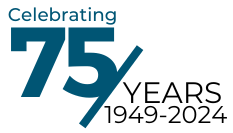AI-powered writing assistant tools are designed to enhance the way we craft emails, marketing collateral, social media captions, and other business communications. While these tools offer helpful support in enhancing our writing, it’s crucial to understand the do’s and don’ts to fully leverage their potential while maintaining authenticity.
Do Embrace Efficiency and Accuracy
Utilize AI-powered writing assistants, like Grammarly.ai, to streamline your writing process. These tools help catch grammatical errors, suggest improvements in sentence structure, and offer vocabulary enhancements, saving you time and ensuring your message is conveyed as professionally and accurately as possible.
Do Fine-Tune Your Content
Take advantage of the detailed feedback provided by these tools to refine your content. Pay attention to suggestions regarding clarity, tone, and style, ensuring your message resonates effectively with your audience.
Do Learn and Adapt
Use the insights gained from AI-driven suggestions to enhance your writing skills. Pay attention to recurring errors or areas of improvement highlighted by the tool, and incorporate these lessons into your future writing endeavors.
Don’t Overly-Rely on Automation
Avoid becoming overly dependent on AI-powered writing assistants. While these tools offer invaluable support, remember that they are aids, not replacements for human creativity and intuition. Strive to maintain your unique voice and perspective in your written content.
Don’t Sacrifice Authenticity
Resist the temptation to sacrifice authenticity for the sake of perfection. While it’s essential to strive for clarity and correctness, it’s equally important to ensure your writing reflects your personality and brand identity. Don’t let AI tools take away from the human aspect of your communication.
Don’t Neglect Manual Proofreading
Despite the advanced capabilities of AI-powered writing assistants, they are not infallible. Always conduct manual proofreading of your content to catch any errors or inconsistencies that may have been overlooked by the tool. Human oversight remains crucial in ensuring the quality and integrity of your written communications.
Sponsored by: 


